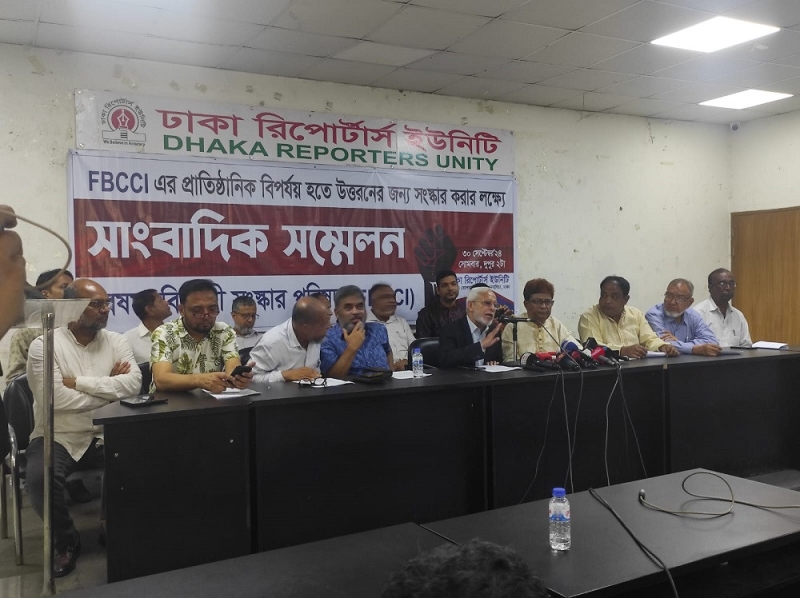- Arms smuggling attempts rise ahead of BD polls: Home Adviser |
- Dense fog blankets Dhaka as wintry chill disrupts normal life |
- BGB must maintain strategic relations with neighbours: Adviser |
- Tarique’s nomination papers submitted for Dhaka-17 seat |
- RAB seizes gunpowder, bomb-making materials in Chapainawabganj |
Business Leaders Propose 8 Reforms for FBCCI Accountability

A coalition of business leaders, under the banner of the Anti-Discrimination Reform Parishad (ADRP), has presented an 8-point reform agenda aimed at revitalizing the Federation of Bangladesh Chambers of Commerce and Industry (FBCCI). They argue that the apex trade body has fallen short of meeting the needs and expectations of the country's business community.
At a press conference today at Dhaka Reporters’ Unity, ADRP Coordinator Zakir Hossain Nayon outlined the proposals, joined by fellow coordinators Abul Kashem Haider, Gais Uddin Chowdhury Khokon, and Md. Zakir Hossain.
One of the primary demands is a revamp of the FBCCI's election process to inject new energy into its operations. The group advocates for the direct election of the president, vice-presidents, and directors, calling for the abolition of the current nomination system. They also propose reducing the number of directors to streamline decision-making.
The coalition expressed concern that, over the past decade and a half, FBCCI leadership has failed to address rising prices of essential commodities and combat market syndicates. They claim that leaders have prioritized personal gain and government appeasement over the welfare of the business community.
Furthermore, the ADRP highlighted that small and medium enterprises have long been neglected by the FBCCI, limiting their access to essential support and resources.
Currently, the FBCCI consists of 81 chambers and 382 associations, with 2,230 eligible voters who can elect 32 out of 52 posts. The remaining positions are filled through nominations, with the elected and nominated directors responsible for appointing the organization's leadership. The reform proposals aim to create a more responsive and equitable FBCCI for all members.

